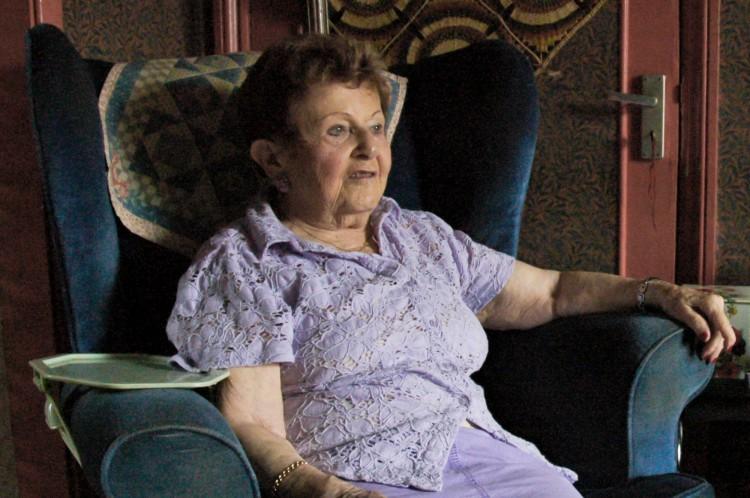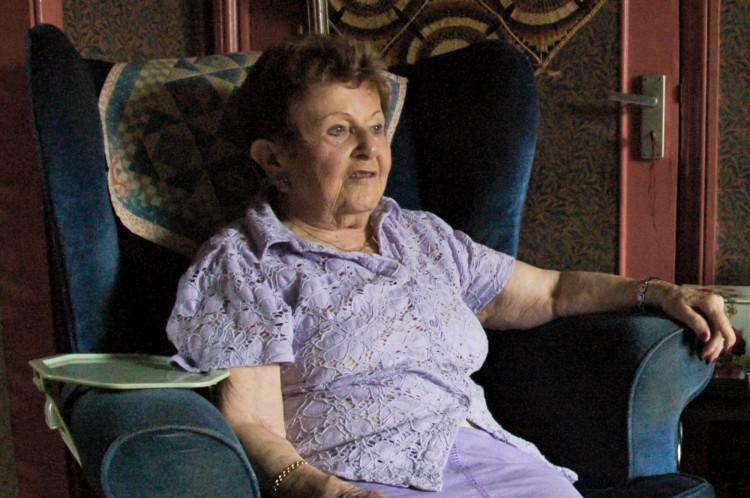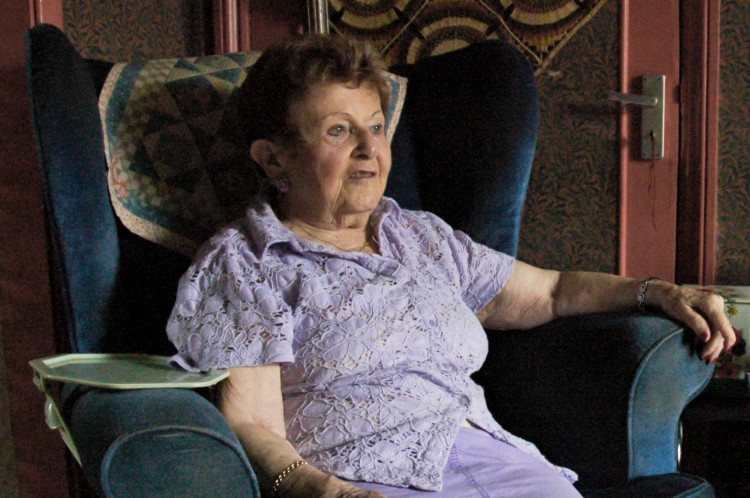LONDON, UK—Margot Barnard was a pioneer of Holocaust education. As early as the 1950s, the German Jew began openly discussing the Holocaust with Germans. The spirited 92-year-old has talked to students at hundreds of schools in Germany and England over the decades.
Her tiny stature and south-German sense of humour put students at ease, explained Barnard. Pale light illuminated the petite figure as she sat in her Hampstead Heath home on a rainy August afternoon.
She has subdued hostile skinhead teenagers in German schools with her smile and kind manner; resistance from some of the Jewish Community has been more difficult to dispel.
Some Jews saw her education campaign as fraternizing with the enemy. Her brother, Walter, once asked whether her forgiveness would extend to her parents’ murderers.
“There are many holocausts,” said Barnard. “We have to stop it somewhere; we have to try at least.”
Nazis defeated, the war on ignorance begins
When Barnard arrived in England in 1945, she met with hostility and ignorance.
She had moved to Palestine in 1936, three years after Hitler gained power. Her parents wanted to join her later, but could not get visas. She joined the British forces and married a British soldier, Ted Barnard. As they sailed from Egypt to England, Barnard heard the announcement: “The war in Europe is over.”
She celebrated with the other passengers, but wondered what news would come of her parents. When she left her mother to go to Palestine, her mother implored, “Please, don’t go, I'll never see you again!” Barnard knew they had been taken to a concentration camp.
London was alive with celebration. At a street party, people danced to “Knees up Mother Brown” while Barnard remained aloof. Her husband explained her reserve: “Unfortunately we only heard today that [her parents] were killed.”
Barnard recalled her brother-in-law’s response: “That’s only propaganda, that didn’t happen.” Bernard thought everyone knew what the Nazis did to the Jews, but she found most Londoners completely unaware.
Her in-laws and others were hostile towards her. She was a German—the enemy—and also as a Jew, a Palestinian, and an all-around foreigner.
When her husband was stationed in Germany in 1956, she returned with him to her homeland. She was, however, a foreigner even there. Being Jewish and now a British citizen—part of the occupying power—she felt unwelcome.
Return to Germany
Many Germans continued to support Nazism, others denied the genocide. What was worse for Barnard, however, was the feeling that life continued as usual. She watched a woman eat cake outside a Hanover café as though millions of Jews had not been led to gas chambers. Barnard’s grief burst to the surface.
Barnard spoke at a German school for the first time in 1987. The students were happy to talk about the Holocaust openly, as many of them were unable to do so at home. They felt guilt and shame; they knew some people hated Germans for the Holocaust.
At some schools she was warned about skinhead teenagers. A group of 15-year-olds at a school in Beuel stood in a menacing manner as she entered the class. As Barnard spoke, they sat down. At the end, they even participated congenially in the discussion.
Barnard did not discuss the war much with her own children. Her eldest son, David, once confessed he thought she did not talk about it because her parents had done something wrong. He could not understand why else they would be killed.
As years passed, she was able to discuss the Holocaust more openly with her family. Her brother, who moved to Canada, especially avoided the topic when they reunited after the war.
For Barnard, it is important to not only discuss the war, but also the roots of anti-Semitism. She finds teachers are often ignorant of those roots, and thus unable to educate students.
“You are our teacher,” a teacher in her native Bonn told Barnard.
A testament to Barnard’s educational influence is the recent renaming of Bonn’s Medinghoven Realschule (secondary school) as Margot Barnard Realschule.
The Epoch Times publishes in 35 countries and in 19 languages. Subscribe to our e-newsletter. .







